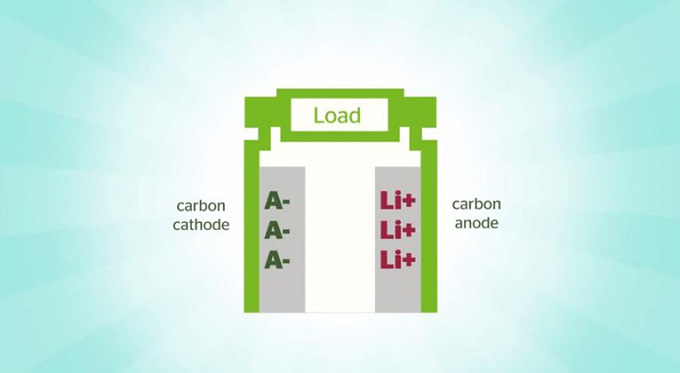 A Japanese company may have developed the rechargeable battery that everyone has been waiting for. For years the Lithium Ion battery has powered today’s smartphones and tablets, but lately electric car manufacturers have relied on Lithium Ion batteries to power their vehicles. These batteries are often big, bulky and take a while to charge.
A Japanese company may have developed the rechargeable battery that everyone has been waiting for. For years the Lithium Ion battery has powered today’s smartphones and tablets, but lately electric car manufacturers have relied on Lithium Ion batteries to power their vehicles. These batteries are often big, bulky and take a while to charge.
Gizmag reports that Japanese power company, Power Japan Plus, has announced a new battery called “Ryden”. This new battery is a disruptive dual carbon battery and can reportedly be charged 20 times faster than traditional Lithium Ion batteries, making it ideal for an electric car.
The battery, which was developed by Power Japan Plus in conjunction with Kyushu University is described as “dual carbon” which means both electrodes are made out of carbon. This dual carbon design makes the battery more economical, safer, reliable and more environmentally sustainable. This new battery also has a higher energy density.
Translated into terms that the average person would understand, the new dual carbon battery could charge a Nissan Leaf in 12 minutes vs the 4 hours it currently takes. Gizmag reports that the new battery could charge the top of the line Tesla Model S in 42 minutes.
 Undoubtedly a dual carbon battery would mean that electric car owners could take their cars further. A 12 minute charge would be just enough time for a bathroom break and a snack on a long car trip. A Tesla Model S owner could stop and grab a meal, knowing that in 42 minutes their car would be fully charged up and ready for another 300 mile trek.
Undoubtedly a dual carbon battery would mean that electric car owners could take their cars further. A 12 minute charge would be just enough time for a bathroom break and a snack on a long car trip. A Tesla Model S owner could stop and grab a meal, knowing that in 42 minutes their car would be fully charged up and ready for another 300 mile trek.
The Ryden battery also has a more sustainable long term battery life, and should be good for 3,000 charge and discharge cycls, vs the Lithium Ion battery which is rated for 1,000 cycles. That means with the dual carbon battery that same Tesla Model S could go 900,000 miles on the same battery, which undoubtedly means the battery would last the life of the vehicle.
Power Japan Plus will do an initial run of 18,000 batteries later this year which will be used for satellites and medical equipment. They will also license the technology for use in electric vehicles.
Source: Power Japan Plus via: Gizmag

